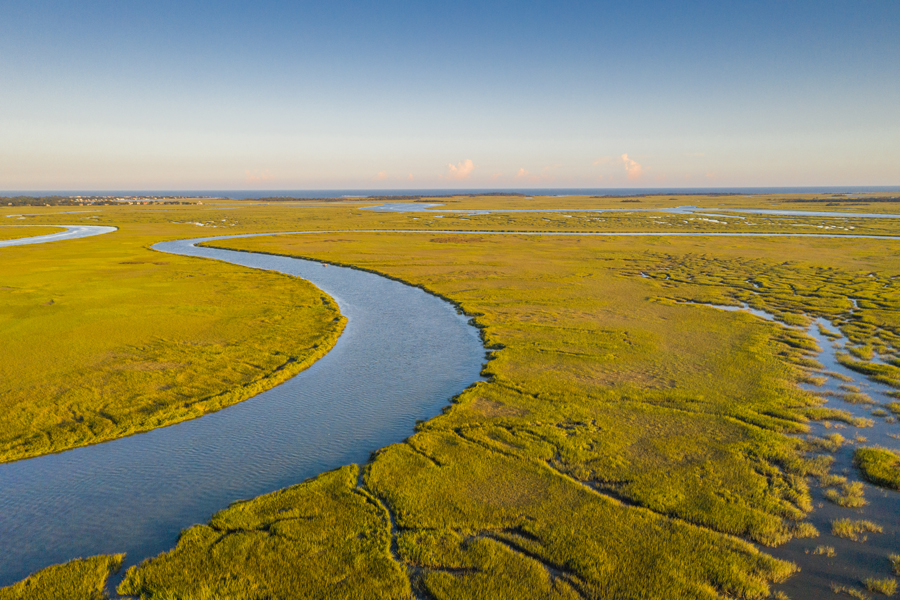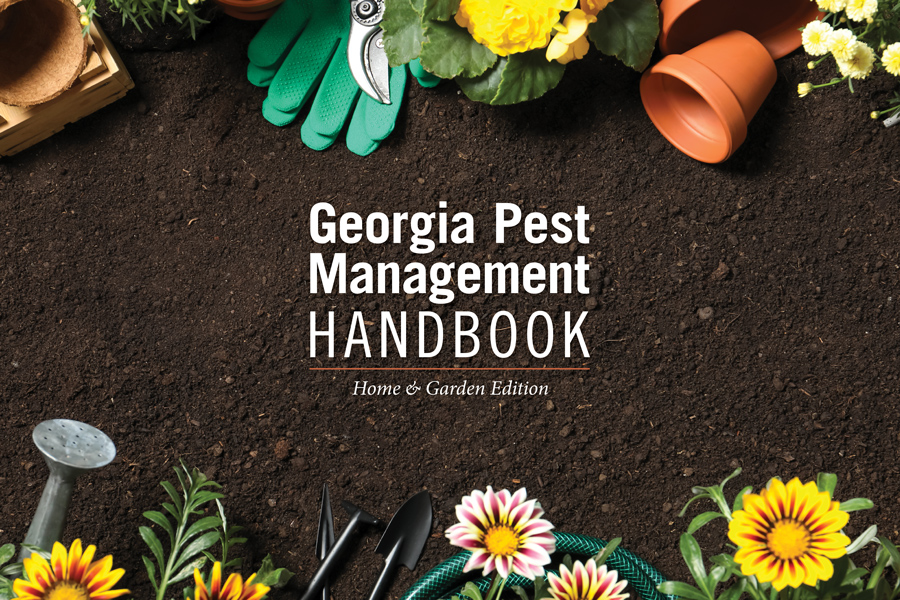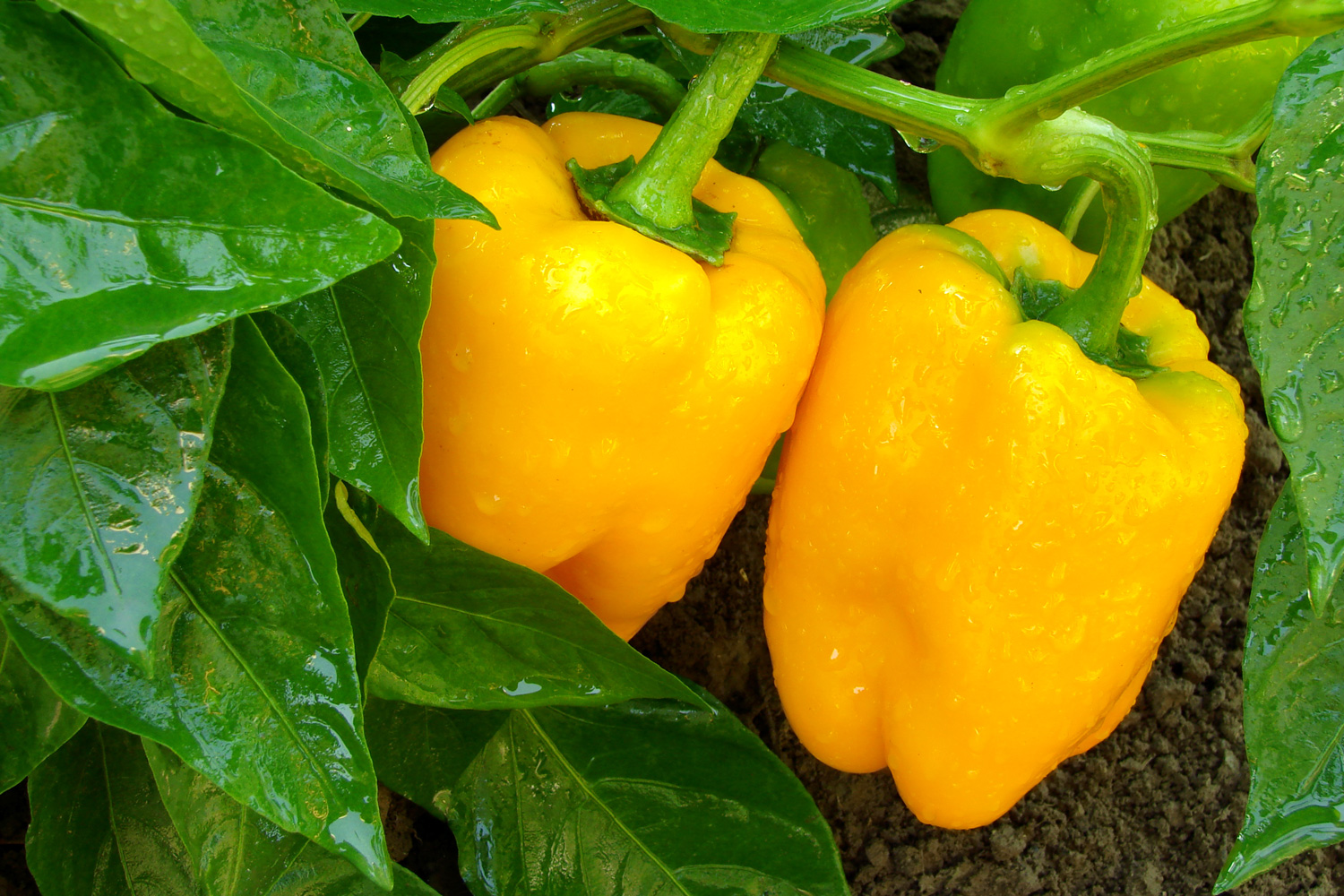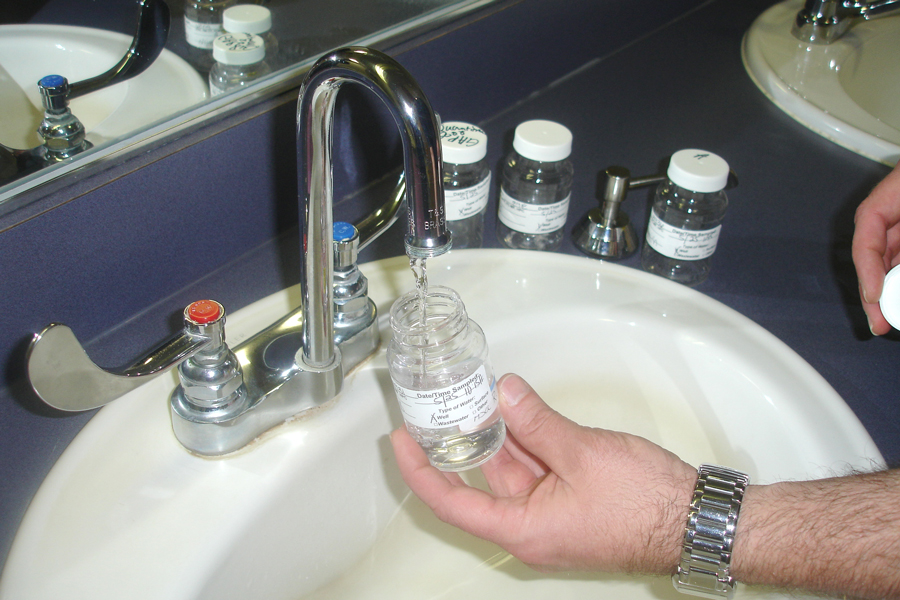Water
-

B 1242-7
Bacterial Source Tracking (BST)
Fecal contamination of water impacts many regions of the U.S. and may carry risks to human health. When a water body fails to meet water quality standards for fecal bacteria, the Federal Clean Water Act requires a Total Maximum Daily Load analysis to establish how many bacteria are in the water, the sources of bacteria and whether the contamination varies seasonally. If all the point sources of contamination are acknowledged and there is still a bacterial problem, it may be time to try additional source identification tools, such as Bacterial Source Tracking.
Gary L. Hawkins
|
-

Since only a small amount of water is available for human use, this publication was written to provide a broad-based discussion of how to protect our surface water resources.
Gary L. Hawkins and Daniel L. Thomas
|
-

With the passing of the Clean Water Act and subsequent creation of the U.S. Environmental Protection Agency (EPA) in the early 1970s, industrial, institutional, and commercial entities have been required to continually improve the quality of their process wastewater effluent discharges. The determination of wastewater quality set forth in environmental permits has been established in a series of laboratory tests focused on four major categories: 1. Organics, 2. Solids, 3. Nutrients, 4. Physical Properties. For most people, it’s not necessary to possess a complete understanding of the standard methods required to accurately complete critical wastewater analytical tests. However, a fundamental understanding of the theory behind and working knowledge of the basic procedures used for each test, and the answers to commonly asked questions about each test, can be a valuable tool for anyone involved in generating, monitoring, treating, or discharging process wastewater. This publication is designed to provide a solid working knowledge of one of the major wastewater analytical test categories: 2. Solids.
Brian H Kiepper
|
-

SB 48-04
Aquatic Environments
This section of the Home & Garden Edition covers external parasite control in aquatic environments, including fishery chemicals, aquatic weed control, response to herbicides, restrictions, and calculating concentrations in aquatic environments. Beginning in 2022, the Home & Garden Edition has been updated biennially. When purchasing a product based on a first-year recommendation of the Handbook, check the current product label before purchase to be sure it is still labeled for the use for which you are buying it. For pesticide products you have on hand from earlier purchases, you are allowed to use them until they are depleted without penalty under the law. Always follow label instructions before use. Contact the product’s manufacturer for the most up-to-date label.
Gary J. Burtle, Jay Shelton, Allison Faye Johnson, and Braxton Grey Crews
|
-

This publication is part of a series focusing on irrigation scheduling for vegetable crops. It contains basic information on water use and irrigation management using the crop water demand method for Solanaceae crops such as bell peppers, tomatoes, and eggplants.
Justin Shealey and Laurel Dunn
|
-

An abundant supply of clean, safe drinking water is essential for human and animal health. Water from municipal or public water systems is treated and monitored to ensure that it is safe for human consumption. Many Georgia residents, especially in rural areas, rely on private water systems for human and livestock consumption. Most private water systems are supplied by wells. Water from wells in Georgia is generally safe for consumption without treatment. Some waters, however, may contain disease-causing organisms that make them unsafe to drink. Well waters may also contain large amounts of minerals, making them too “hard” for uses such as laundering, bathing or cooking. Some contaminants may cause human health hazards and others can stain clothing and fixtures, cause objectionable tastes and odors, or corrode pipes and other system components.
Uttam K. Saha and L. Mark Risse
|
-

With growing demands for potable (suitable for drinking) water (due to population increase) and expanding irrigated acreage, there is an increased pressure on irrigated farms to consider using nonpotable alternatives. However, low quality irrigation water can adversely affect soil physical conditions and crop production.
This publication provides in-depth information on the following aspects of agricultural irrigation water quality:
-Importance of irrigation water quality
-Major attributes of irrigation water quality
-Common units used
-Salts content
-Toxicity and their sources
-Bacteria in water sourcesGary L. Hawkins, Stephanie Butcher, Uttam K. Saha, Wesley Porter, and Jason Lessl
|
-

Pathogens in household waters pose a serious threat to human health. The CDC has recorded many drinking water microbial-associated disease outbreaks in the U.S., causing illness, hospitalization, and even death. To protect human health, disinfection is considered important in most water treatment systems. This publication provides necessary information on the various disinfection options for household water as well as important points to consider before buying disinfection equipment.
Keith Mickler, Gary L. Hawkins, Pamela R. Turner, and Uttam K. Saha
|
-

Mechanical filtration removes suspended solids and dirt to greatly improve the clarity of water. Various kinds of mechanical filtration methods and devices are available for home water treatments. Primarily, the size of the suspended solids will determine the appropriate type of mechanical filtration device suitable for your unique situation. Consumers interested in filtration devices should discuss the advantages and disadvantages of various available options with a water treatment professional. This publication discusses the various aspects of mechanical filtration.
Gary L. Hawkins, Pamela R. Turner, Uttam K. Saha, and Jason Lessl
|